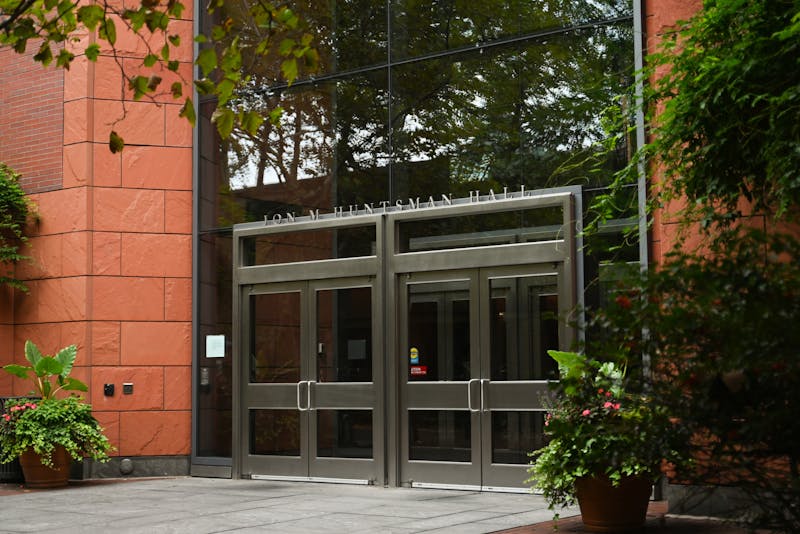Last week, Mayor Nutter announced that city government officials had underestimated the size of Philadelphia's budget deficit by $1 billion, raising the total funds shortage to $2 billion. Faced with this unpleasant economic situation, it's easy to immediately cry "recession." But Philly's fiscal gap cannot be solely blamed on the financial crisis.
In fact, the current deficit is the result of many years of inefficient government operations and bloated compensation packages for municipal workers. "What has changed now is that the cost of our pension has gone up dramatically because of the economic crisis, and some of the tax revenue has dried up," said Brett Mandel, the executive director of Philadelphia Forward, an organization for civic engagement in urban reform. In other words, the recession did not create new problems but merely exacerbated inefficiencies already existing in the system. Unfortunately, instead of proposing genuinely reformative policies that would curb these excesses, the City is sticking with stop-gap solutions like raising taxes and closing libraries. Sunday's Inquirer featured a lengthy article about the myriad taxes proposed, from a wage tax to property tax hikes to delinquency taxes. None of these, however, are long-range solutions.
In fact, all of them would detract from Philly's long-term future by increasing the cost of living and doing business in an already-expensive city. "If you raise taxes, you might increase revenues in the short term," public policy and history professor Ted Hershberg said. "But inevitably, you end up driving out people and businesses."
Equally misguided is the much-derided initiative to close libraries. According to Philadelphia's 2008 budget summary, the City spent a measly $42 million on libraries. Even if Nutter were to cut off every cent of funding for the libraries, he would only be able to make up for 2 percent of the $2 billion deficit.
By comparison, "our city's budget is about 60 percent people, either salaries or fringe benefits," Mandel said. "Looking at those bloated bureaucracies, we can reduce that. And the fringe benefits that we give to our unionized work force, they're too high."
For instance, to carry out his Neighborhood Transformation Initiative, former Philadelphia Mayor John Street created a bevy of housing and planning agencies to deal with resettlement, demolition and construction. Seven years later, very few of these bureaucratic entities have been consolidated, even though the program has essentially ended. By reducing these redundancies in its government bureaucracy, Philadelphia could save millions in operating costs.
Despite these organizational inefficiencies, however, the bulk of the City's expenses lay with its employees' health benefits and pensions. Generous benefits packages are often provided by the city government in exchange for lower salaries, but the cost of these programs often grow at a rate that outpaces the rest of the City's expenses. There is no easy answer to this problem - not reducing benefits for municipal workers would result in tax increases and service cutbacks, but doing so could cost Nutter his reelection.
It boils down to this: Either Philadelphia figures out how to compensate its workers more efficiently or it contracts out many of its basic services. In the first scenario, compensation will still make up a large portion of the City's expenses, but creative benefits provision strategies could generate some cost savings.
For instance, "The way the benefits are provided can be very costly or not so costly," Hershberg said. "When you allow unions to buy health care separately, it costs [the City] a lot more money [to allow unions to buy health care separately] than for the City to negotiate with one vendor like BlueCross BlueShield."
Alternatively, Nutter and other officials could avoid the messiness of union negotiations altogether by contracting out certain public services. As for-profit companies, private contractors are forced to use their resources more effectively than a government entity in order to provide the lowest bid. For example, trash collection in Philadelphia is "an activity that's wholly done by government employees," according to Hershberg. "But in Indianapolis, there's documented evidence that the City can save many millions of dollars if it contracts out by competitive bidding."
Ultimately, any plan for closing the deficit gap will have its critics. But instead of relying on easy answers that would hurt the city's long-term future, Nutter should take advantage of the current state of urgency to either renegotiate benefits and pension packages or contract out certain services. Either or both of these measures would go a long way in truly reforming Philadelphia's bureaucracy and allow for sustainable growth.
Lisa Zhu is a College and Wharton senior from Cherry Hill, NJ. Zhu-ology appears on Thursdays. Her email address is zhu@dailypennsylvanian.com
The Daily Pennsylvanian is an independent, student-run newspaper. Please consider making a donation to support the coverage that shapes the University. Your generosity ensures a future of strong journalism at Penn.
DonatePlease note All comments are eligible for publication in The Daily Pennsylvanian.







